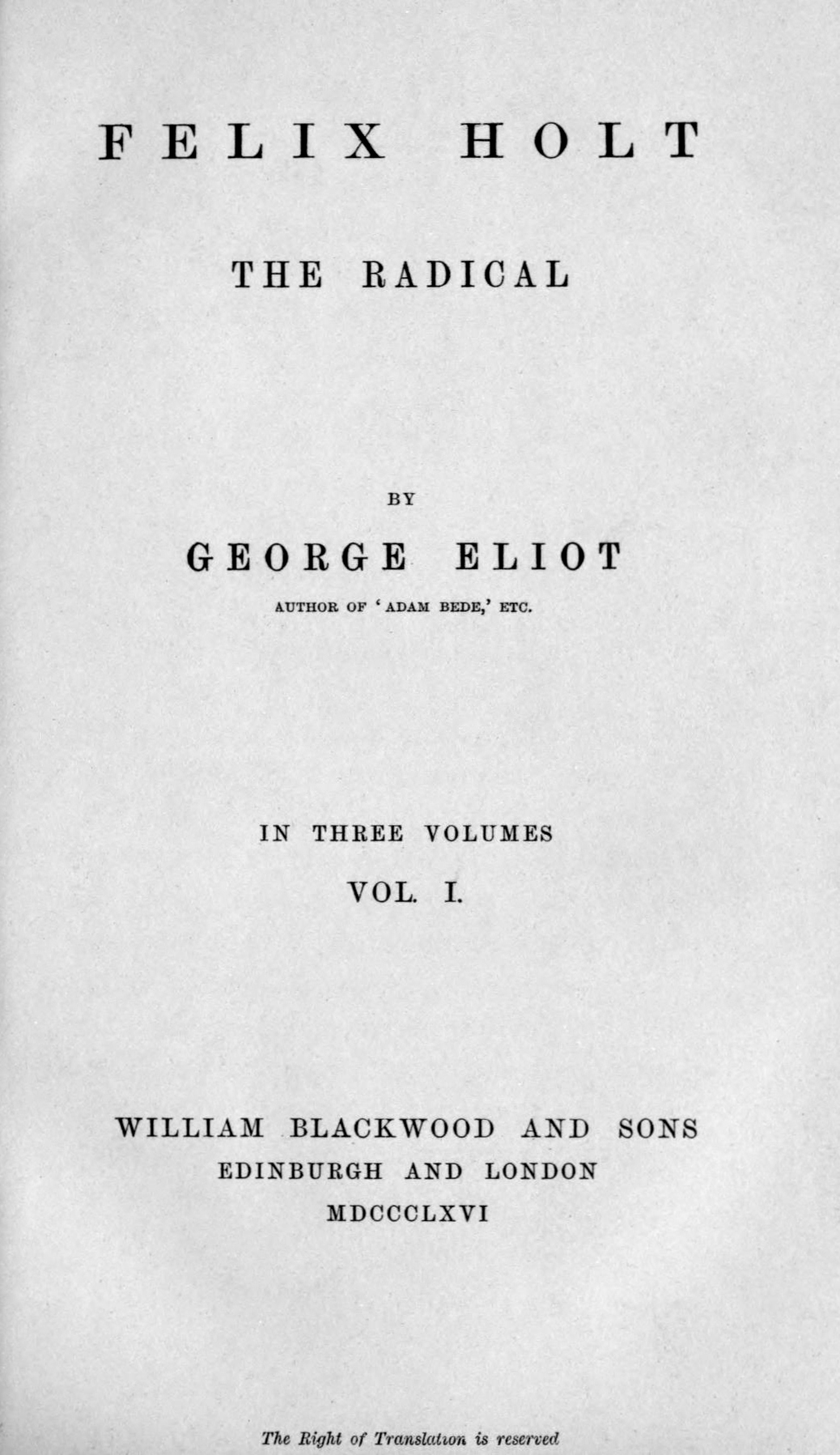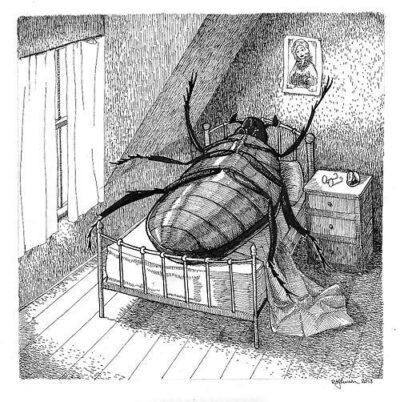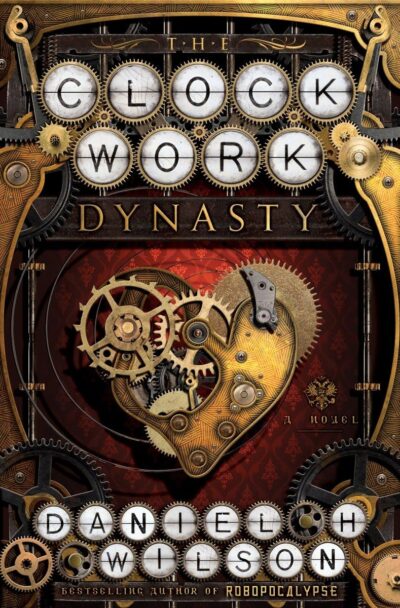Last spring, I revisited one of my favorite novels in order to write a post just like this (an example post for my students). I wrote about re-reading George Eliot’s Middlemarch and I tried to articulate why it is I love reading works written in the nineteenth century. Here’s what I said back when I wrote that post.
So, why do I enjoy these novels? I think it’s because I love inhabiting the storyworld created by an author who actually lived in that period. There is some fantastic historical fiction out there, written now but set in the past (check out The French Lieutenant’s Woman if this is something that interests you) but I’m talking about nineteenth-century novels written in the nineteenth century. I think it’s easier for me to inhabit those storyworlds because I love the period. I spent many years working on a dissertation about the nineteenth century, which involved reading many novels and plays, but also many letters, diary entries, and newspaper stories written in the period. All of this research immersed me in that earlier historical period and made it easier and more enjoyable for me to experience the storyworlds created by authors living at that time. I understand vocabulary and historical context in these novels and that makes it easier to enjoy them. This helps me understand why I have such a hard time enjoying certain others genres that my students have recommended to me (like manga). I just can’t picture the storyworld. I don’t “get it.” Now, if I really wanted to get it, I could just start immersing myself in the details of those worlds so it would become easier.
“Storyworld” -Mary Isbell
Re-reading George Eliot’s Middlemarch (and loving it even more than I had when I’d previously read it) inspired me to read more of her work. Middlemarch filled me with wonder (her narration was just so beautiful—the characters were so real and flawed and wonderful). It also helped me think about my own life. Essentially, her unique way of narrating many different characters and their complicated and conflicting motivations served as an excellent reminder that everyone’s got their own shit going on–it allowed me to adjust my expectations of other people. I wanted to keep having that experience. I wanted to exist within the worlds she created. I wanted to spend time with her.
I did this reading with audiobooks because I find it really hard these days to use the small amounts of quiet that I have to invest in reading. I typically feel like every second that my kids are at school/daycare should be spent working and after they’re in bed, I usually want to watch a show (is there anything better than Ted Lasso? Maybe, but I’m currently watching the series for the first time and can think of nothing else). But I spend quite a bit of time driving and doing dishes and other chores. With audiobooks, I read during these moments and I love it.
For this post, I’m going to focus on the book I’m currently experiencing—Felix Holt, The Radical—and since this assignment focuses on storyworld, I’m going to try to identify the technologies Eliot uses to craft the storyworld. This is going to be messy because I am literally working through the ideas while drafting (and I want to share this messiness with you so you know it’s okay to write a draft like this!).
Describing my Experience
My primary experience of this novel has been frustration/anger with a male character—Felix Holt—who thinks it is his job to change other people. Because I trust Eliot as a novelist, I am not setting the book aside—I trust that there are layers of complexity that I can’t know yet because I haven’t finished the novel. I think I am in some way identifying with Felix, but I’m also separate from him and judging his decisions. He’s not presented as heroic and I don’t yet know if he’s a tragic figure (that is–will these things that I don’t like prove a mistake that causes his downfall?). I sometimes think that Eliot is presenting Holt’s behavior as good or noble (I guess mainly because I agree with his perspective on the world most of the time and I’m critical of the same characters he’s critical of) and then there’s always this possibility that her assessment of the plot she’s laying out might be something I disagree with (I’m thinking of Emily’s very thoughtful criticism of Pretty Little Liars in her first post–there are times when we disagree with the values conveyed/encouraged by a story).
Classifying my Experience
Okay, this is really jumbled so I just looked at the glossary of experiences to see if anything fits.
I think I have been experiencing a smidge of moral omniscience (A clear sense of what is right and what is wrong), but actually more confusion (The feeling of being bewildered or unclear). That is, I see the messy political situation in the novel and I know what is certainly wrong, but I don’t actually know what the best thing to do is. I’m also experiencing curiosity because I want to see what decisions the characters make and how they play out. And that feels a little bit like wanting Eliot to tell me what’s right (but I also feel that there isn’t one right path in this complicated situation).
Features That Prompted My Experience
Here’s an early scene that made me feel angry at Felix for thinking it’s his role to change someone. He’s very recently met Esther (classic nineteenth-century novel meet cute…he judges her for what she’s reading and she surprises him by being quick-witted and capable of arguing with him). He’s spending more time with her (he’s friends with her father) and during this visit, he’s starting to make more pointed criticisms–not just about her reading taste but her entire way of being in the world. If I had assigned Felix Holt in a literature course and was helping students think through his character, I might try to get a conversation started about woke culture.
“Oh, pray, Mr. Holt, don’t go on reading with that dreadful accent; it sets one’s teeth on edge.” Esther, smarting helplessly under the previous lashes, was relieved by this diversion of criticism.
Chapter 10 of Felix Holt (copy/pasted from Project Gutenberg edition)
“There it is!” said Felix, throwing the book on the table, and getting up to walk about. “You are only happy when you can spy a tag or a tassel loose to turn the talk, and get rid of any judgment that must carry grave action after it.”
“I think I have borne a great deal of talk without turning it.”
“Not enough, Miss Lyon—not all that I came to say. I want you to change. Of course I am a brute to say so. I ought to say you are perfect. Another man would, perhaps. But I say I want you to change.”
“How am I to oblige you? By joining the Church?”
“No; but by asking yourself whether life is not as solemn a thing as your father takes it to be—in which you may be either a blessing or a curse to many. You know you have never done that. You don’t care to be better than a bird trimming its feathers, and pecking about after what pleases it. You are discontented with the world because you can’t get just the small things that suit your pleasure, not because it’s a world where myriads of men and women are ground by wrong and misery, and tainted with pollution.”
Esther felt her heart swelling with mingled indignation at this liberty, wounded pride at this depreciation, and acute consciousness that she could not contradict what Felix said. He was outrageously ill-bred; but she felt that she should be lowering herself by telling him so, and manifesting her anger; in that way she would be confirming his accusation of a littleness that shrank from severe truth; and, besides, through all her mortification there pierced a sense that this exasperation of Felix against her was more complimentary than anything in his previous behavior. She had self-command enough to speak with her usual silvery voice.
“Pray go on, Mr. Holt. Relieve yourself of these burning truths. I am sure they must be troublesome to carry unuttered.”
“Yes, they are,” said Felix, pausing, and standing not far off her. “I can’t bear to see you going the way of the foolish women who spoil men’s lives. Men can’t help loving them, and so they make themselves slaves to the petty desires of petty creatures. That’s the way those who might do better spend their lives for nought—get checked in every great effort—toil with brain and limb for things that have no more to do with a manly life than tarts and confectionery. That’s what makes women a curse; and life is stunted to suit their littleness. That’s why I’ll never love, if I can help it; and if I love, I’ll bear it, and never marry.”
The tumult of feeling in Esther’s mind—mortification, anger, the sense of a terrible power over her that Felix seemed to have as his angry words vibrated through her—was getting almost too much for her self-control. She felt her lips quivering; but her pride, which feared nothing so much as the betrayal of her emotion, helped her to a desperate effort. She pinched her own hand hard to overcome her tremor, and said, in a tone of scorn—
“I ought to be very much obliged to you for giving me your confidence so freely.”
“Ah! now you are offended with me, and disgusted with me. I expected it would be so. A woman doesn’t like a man who tells her the truth.”
“I think you boast a little too much of your truth-telling, Mr. Holt,” said Esther, flashing out at last. “That virtue is apt to be easy to people when they only wound others and not themselves. Telling the truth often means no more than taking a liberty.”
“Yes, I suppose I should have been taking a liberty if I had tried to drag you back by the skirt when I saw you running into a pit.”
“You should really found a sect. Preaching is your vocation. It is a pity you should ever have an audience of only one.”
“I see I have made a fool of myself. I thought you had a more generous mind—that you might be kindled to a better ambition. But I’ve set your vanity aflame—nothing else. I’m going. Good-bye.”
“Good-bye,” said Esther, not looking at him. He did not open the door immediately. He seemed to be adjusting his cap and pulling it down. Esther longed to be able to throw a lasso round him and compel him to stay, that she might say what she chose to him; her very anger made this departure irritating, especially as he had the last word, and that a very bitter one. But soon the latch was lifted and the door closed behind him. She ran up to her bedroom and burst into tears.
And here’s another one. It’s nomination day for parliamentary elections and Felix has been observing lots of people gathered to discuss political matters. He listens to someone giving a rousing populist speech against monopolies to a group of liberals, who are emboldened by what the speaker is saying. One man in the crowd says “I say, if we workingmen are ever to get a man’s share, we must have universal suffrage, and annual Parliaments, and the vote by ballot, and electoral districts.” Felix joins in and then starts his own speech:
Chapter 30 of Felix Holt (copy/pasted from Project Gutenberg Edition)
“In my opinion,” he said, almost the moment after he was addressed, “that was a true word spoken by your friend when he said the great question was how to give every man a man’s share in life. But I think he expects voting to do more toward it than I do. I want the workingmen to have power. I’m a workingman myself, and I don’t want to be anything else. But there are two sorts of power. There’s a power to do mischief—to undo what has been done with great expense and labor, to waste and destroy, to be cruel to the weak, to lie and quarrel, and to talk poisonous nonsense. That’s the sort of power that ignorant numbers have. It never made a joint stool or planted a potato. Do you think it’s likely to do much toward governing a great country, and making wise laws, and giving shelter, food, and clothes to millions of men? Ignorant power comes in the end to the same thing as wicked power; it makes misery. It’s another sort of power that I want us workingmen to have, and I can see plainly enough that our all having votes will do little toward it at present. I hope we, or the children that come after us, will get plenty of political power some time. I tell everybody plainly, I hope there will be great changes, and that some time, whether we live to see it or not, men will have come to be ashamed of things they’re proud of now. But I should like to convince you that votes would never give you political power worth having while things are as they are now, and that if you go the right way to work you may get power sooner without votes. Perhaps all you who hear me are sober men, who try to learn as much of the nature of things as you can, and to be as little like fools as possible. A fool or idiot is one who expects things to happen that never can happen; he pours milk into a can without a bottom, and expects the milk to stay there. The more of such vain expectations a man has, the more he is a fool or idiot. And if any working man expects a vote to do for him what it never can do, he’s foolish to that amount, if no more. I think that’s clear enough, eh?”
I’m still not sure what I think about the position Felix is taking here. I know that he thinks men aren’t educated enough to have power and he wants to encourage them to learn more before trying to make political decisions. He is fundamentally an educator, but I think it’s pretty bold to try and convince a group of people that they’re idiots and need to learn more before they can weigh in on political matters.
There are other scenes where it’s very clear that other characters in the novel are selfish and obnoxious. Harold Transome was born into a wealthy family and he went away to Smyrna, got rich, and returned home determined to stand for parliament as a radical/liberal (very shocking to his mother, since landholders have always been Tories). His reason for running as a liberal is NOT that he believes in the ideas so much as he sees an opportunity to be elected by men in the country who resent the wealthy but now have the ability to vote (he’s eager to manipulate the men Felix Holt wants to educate). I mostly don’t like how dismissive he is of his mother–and I think Eliot does this on purpose. In this moment, his mother is responding to his announcement that he wants to stand for parliament as a liberal:
“Yet I should think there are some things which people who have been stationary at Little Treby could tell you, Harold,” said Mrs. Transome. “It did not signify about your holding Radical opinions at Smyrna; but you seem not to imagine how your putting up as a Radical will affect your position here, and the position of your family. No one will visit you. And then—the sort of people who will support you! You really have no idea what an impression it conveys when you say you are a Radical. There are none of our equals who will not feel that you have disgraced yourself.”
“Pooh!” said Harold, rising and walking along the room.
But Mrs. Transome went on with growing anger in her voice—”It seems to me that a man owes something to his birth and station, and has no right to take up this notion or other, just as it suits his fancy; still less to work at the overthrow of his class. That was what every one said of Lord Grey, and my family at least is as good as Lord Grey’s. You have wealth now, and might distinguish yourself in the county; and if you had been true to your colors as a gentleman, you would have had all the greater opportunity, because the times are so bad. The Debarrys and Lord Wyvern would have set all the more store by you. For my part, I can’t conceive what good you propose to yourself. I only entreat you to think again before you take any decided step.”
“Mother,” said Harold, not angrily or with any raising of his voice, but in a quick, impatient manner, as if the scene must be got through as quickly as possible; “it is natural that you should think in this way. Women, very properly, don’t change their views, but keep to the notions in which they have been brought up. It doesn’t signify what they think—they are not called upon to judge or to act. You must leave me to take my own course in these matters, which properly belong to men. Beyond that, I will gratify any wish you may choose to mention. You shall have a new carriage and a pair of bays all to yourself; you shall have the house done up in first-rate style, and I am not thinking of marrying. But let us understand that there shall be no further collision between us on subjects on which I must be master of my own actions.”
“And you will put the crown to the mortifications of my life, Harold. I don’t know who would be a mother if she could foresee what a slight thing she will be to her son when she is old.”
Mrs. Transome here walked out of the room by the nearest way—the glass door open toward the terrace. Mr. Jermyn had risen too, and his hands were on the back of his chair. He looked quite impassive: it was not the first time he had seen Mrs. Transome angry; but now, for the first time, he thought the outburst of her temper would be useful to him. She, poor woman, knew quite well that she had been unwise, and that she had been making herself disagreeable to Harold to no purpose. But half the sorrows of women would be averted if they could repress the speech they know to be useless—nay, the speech they have resolved not to utter.
I’m now almost done with the novel and one of the characters—Esther—has finally learned that she is the “rightful heir” to a fortune that she never asked for and the people who currently possess that wealth are trying to trick her out of it. Felix, who loves Esther, is the one who frustrated me at the start of the novel for trying to change her into a person who doesn’t care about wealth and being fashionable but he’s currently in jail because he intervened in a riot and everyone assumes that the riot is his fault (when he was actually just guiding the crowd of angry men away from people they wanted to injure). His judgment of Esther is the thing that made me most frustrated about the novel at the start. But now I’m sort of like “hey Esther, just say no to the fancy life! It’s going to make you miserable!” Eliot’s narration gives us insight into most characters’ thoughts and she narrates them sometimes with a free indirect narrative style that allows us to empathize (that is, understand why they think they way they do and simultaneously be critical of their thoughts/actions). Just like other novels of Eliot’s that I love, all of these characters exist and have their own perspectives on the way the world works and so I can understand what is motivating them and also disagree with what they’re trying to do.
I’m still unsure what’s going to happen at this point in the novel—having not figured out how things will work out for Harold Transome and Felix Holt (though Esther is the one who is the rightful heir and Harold is the one who is trying to woo her so he doesn’t lose his money to her and instead controls it as her husband). Mrs. Transome knows what her son is trying to do and resents her powerlessness as an old woman. I think it’s one of the great soliloquys of the novel, actually, when she mourns this reality (and I think she offers a fairly accurate assessment of how her son views her). She’s talking to her servant, Denner, about Miss Lyon (Esther) who is living in the house since it was discovered she is the rightful owner of the estate.
I don’t deny she’s graceful, and she has a pretty smile and very good manners: it’s quite unaccountable by what Banks says about her father. I know nothing of those Treby townsfolk myself, but for my part I’m puzzled. I’m fond of Mr. Harold. I always shall be, madam. I was at his bringing into the world, and nothing but his doing wrong by you would turn me against him. But the servants all say he’s in love with Miss Lyon.”
Chapter 39 of Felix Hold (copy/pasted from Project Gutenberg edition)
“I wish it were true, Denner,” said Mrs. Transome, energetically. “I wish he were in love with her, so that she could master him, and make him do what she pleased.”
“Then it is not true—what they say?”
“Not true that she will ever master him. No woman ever will. He will make her fond of him, and afraid of him. That’s one of the things you have never gone through, Denner. A woman’s love is always freezing into fear. She wants everything, she is secure of nothing. This girl has a fine spirit—plenty of fire and pride and wit. Men like such captives, as they like horses that champ the bit and paw the ground: they feel more triumph in their mastery. What is the use of a woman’s will?—if she tries, she doesn’t get it, and she ceases to be loved. God was cruel when He made women.”
Trying to Find Technologies
What I can say so far about storyworld is that we have a very realistic world where everything is a mess. That is to say, lots of people have lots of different interests and those interests clash and it seems very likely that the truth will be hidden and people will suffer because of misinformation.
This storyworld also just makes me feel very much like there is no new experience under the sun because the plot centers on a political election and the situation is strikingly similar to every election I’ve experienced since I was old enough to understand what was happening. Felix Holt is frustrated by how those with money are running for a supposedly progressive position by essentially bribing men who can’t vote to make a fuss about the conservative candidate. And all of this is getting everyone so upset they’re likely to create a disturbance if the election doesn’t go their way (which is part of the point). Chapter 11 is a chapter I want to look at again to see if there are more specifics I can pull out of the method Eliot uses to create this world. But here’s my assessment of it so far.
In this world, people are always manipulating other people to get what they want. The only people who navigate this world well are aware that this is happening. You can’t be naive in this world and do well. Or this is what I think so far. I think she’s giving us an opportunity to observe (Constructing a story in which characters display many emotions, perhaps unpredictably, encouraging the viewers or readers to observe and recognize the emotions they are experiencing) and also poetic history (Rearranging our collective memory to help us relearn where we came from). Most of Eliot’s novels are not set in the moment in which she was writing, but in the past–looking back at something to help readers realize something new about it. I think Free Indirect Discourse (A narrator who speaks as a character instead of conveying what they actually said with direct quotation) is how she conveys the complexities of the past (all of the tangled and conflicting motivations) while also guiding our perspective on it–but I need to look at that much more closely as I revise. Also, while I think of this as a narration technology, it should be noted that you only know the storyworld because of the narrator, so narration is an important part of how it’s crafted!
Works Cited
Eliot, George. “Felix Holt, the Radical.” Https://Www.Gutenberg.Org/Files/40882/40882-h/40882-h.Htm, https://www.gutenberg.org/cache/epub/40882/pg40882-images.html. Accessed 10 Feb. 2025.
Experiences Glossary – Story & The Brain. https://unewhavendh.org/story-and-the-brain/experiences-glossary/. Accessed 10 Feb. 2025.
Technologies by Element of Narrative – Story & The Brain. https://unewhavendh.org/story-and-the-brain/technologies-by-element-of-narrative/. Accessed 10 Feb. 2025.
Featured Image
“First edition title page” of Felix Holt is in the Public Domain.




